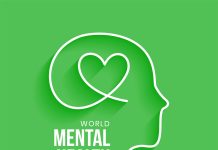Dr Florence Baingana, Regional Advisor, Mental Health and Substance Abuse at the World Health Organization African Region spoke to Open Access Government about mental health and why it is so important today
Open Access Government interviewed Dr Florence Baingana, Regional Advisor, Mental Health and Substance Abuse at the World Health Organization (WHO) African Region about how she defines mental health. After setting the scene, Dr Baingana explores how mental health is related to the promotion of overall health, the prevention of disease, and the treatment and rehabilitation of people negatively affected by mental health conditions.
The fascinating discussion continues. Why is mental health important in the workplace, for example? Or to what extent is mental health more than the absence of mental disorders? Read on to discover the determinants of mental health and why mental health promotion and protection are important. Finally, what exactly is the WHO response to supporting governments in the goal of strengthening and promoting mental health? Dr Florence Baingana provides the answers!
How would you define mental health?
I use the WHO definition that mental health is “a state of well-being in which the individual realizes his or her own abilities, can cope with the normal stresses of life, can work productively and fruitfully, and is able to make a contribution to his or her community”. Mental health includes subjective well-being, perceived self- efficacy, autonomy, competence, intergenerational dependence, and self-actualisation of one’s intellectual and emotional potential, among others. From the perspectives of positive psychology or holism, mental health may include an individual’s ability to enjoy life and to create a balance between life activities and efforts to achieve psychological resilience. Cultural differences, subjective assessments, and competing professional theories all affect how one defines “mental health”. (1)
How is mental health related to the promotion of overall health, the prevention of disease, and the treatment and rehabilitation of people negatively affected by illness?
Mental health is a component of health. One cannot be healthy unless one is mentally healthy as well. When mental health is promoted, physical health also benefits. As an example, meditation, relaxation exercises, yoga, regular physical exercise will benefit both mental and physical health. There is an interrelationship between mental health and physical health. People with life-threatening physical conditions, like cancers, severe and/or stigmatised conditions, like TB and HIV, often have a co-morbid mental health condition, such as anxiety or depression. People with mental health conditions are also at increased risk for other physical conditions, like TB, HIV and AIDS, NCDs, among others.
Why is mental health important in the workplace?
Mental health is very important in the workplace; a mentally healthy workforce is a productive workforce. A number of studies have found that one of the biggest losses to productivity is not only absenteeism, when people do not come into work due to an illness, but “presenteeism”, when people are at work but not really being productive. They could be surfing the web, chatting at the water cooler, having extended breaks and lunches, or just sitting at the desk but not able to work productively.
To what extent would you say that mental health is more than the absence of mental disorders?
Mental health is definitely more than the absence of mental disorders. An example could be a person who does not have a diagnosable mental health condition, but they may not be able to maintain personal relationships, they may not be able to be economically productive. Some people without a mental health condition may plan and carry out horrendous crimes, like kidnapping, murder, interpersonal violence. They may not necessarily have a mental health condition.
What are the determinants of mental health? Why are mental health promotion and protection important? Determinants of mental health can be genetic, that is the genes we inherit from our parents. However, the biggest is known as the social determinants of mental health. These include female gender, lower socioeconomic status, food insecurity, being in a lower- income group, low job satisfaction, being an immigrant from a low- or middle-income country, interpersonal adversity in early childhood, feeling powerlessness, experiencing negative life events, lacking social or emotional support, living alone and living in common- law relationships. There are also environmental factors, like living in a low-income neighbourhood, living in an internally displaced camp, working in a stressful environment. There are natural and man- made adverse events, including earthquakes, mudslides and floods, tsunami, cyclones, hurricanes, as well as epidemics and pandemics and man-made events such as conflicts, rape and other forms of interpersonal violence. Bullying, including cyberbullying is increasingly leading to mental health conditions, especially among young people.
Mental health promotion and prevention are important as they ensure optimal mental well-being, leading to optimal functioning of the individual. The UNICEF State of the World’s Children 2021 reported that universal school mental health promotion programmes, provided during childhood, can provide a return on that investment up to the age of 80 years. There is evidence to suggest that school mental health promotion programmes can reduce the likelihood of children developing conduct disorders, and also reduce the likelihood of an anti-social personality disorder in adulthood. Mental health promotion and prevention activities, like relaxation exercises, yoga, meditation, physical exercise, have been known to maintain mental well-being and decrease relapse, for those who may have a known mental health condition.
What is the WHO response to supporting governments in the goal of strengthening and promoting mental health?
WHO has a Global Mental Health Action Plan 2013- 2030, which outlines specific areas of work that will be the focus, with measurable indicators, up to 2030. WHO developed various guidelines that are available on our website, as well as technical assistance being provided to roll these guidelines out in countries. These include LIVE LIFE, which is to prevent suicide, Helping Adolescents Thrive, SAFER Initiative, which is for reducing the harmful use of alcohol, Problem Management Plus, which is a psychological intervention. Specific to Emergencies, we have Psychological First Aid as well as Basic Psychosocial Skills for COVID-19 Responders. WHO also provides support to countries, so they can strengthen their mental health systems.












How I wish mental health can be given a priority just like NCD and KEPI immunizations.